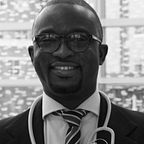Letter from the Resident and Fellow Council Chair #2 On Physician Burn Out
Dear Colleagues,
This time of the academic year is always full of exciting transitions. Some trainees graduate from PM&R residency and fellowship programs and move on to the next phase of their careers, and freshly minted medical graduates begin the hallowed rite of passage — the intern year. Apropos of this, I would like to extend a congratulatory note to all recent graduates and a warm welcome to all new interns and categorical trainees to the specialty of physiatry.
As your representatives at the national level, the RFC seeks to foster ideas and initiatives that enhance your training and together with AAP works to provide resources to help you succeed. In view of this, one of our major campaigns this year is to call attention to an important issue that has risen to the national spotlight — physician burn out.
In a recent interview with MedPage, the Surgeon General of the United States, Vivek Murthy, expressed grave concerns about the increasing rates of physician burn out at time when there is higher demand than ever to train more physicians. He identified cultivation of emotional well-being as a top priority that is critical to the health of physicians and trainees. A first step, however, to promoting wellness is an understanding of the prohibitive factors for medical trainees.
Barriers to attaining emotional well-being among trainees include: sleep deprivation, overtly aggressive work environments, excessive workloads in a rigidly hierarchical culture, physical and mental exhaustion, disillusionment of working within broken health systems, predominance of a blame rather than a just culture, dealing with non-compliant patients, non-cooperative staff and the hurdles of EHRs.
These stressors lead to high rates of depression and suicide among physicians and trainees each year. According to a recent study in the Journal of Graduate Medical Education, less than 50% of depressed interns and residents seek treatment. Trainees are often pressed for time, fear judgment of peers and supervisors, worry about stigma and confidentiality and accept stress as an expected part of training that should be handled independent of help from others. There is also an erroneous belief perpetuated by the perfectionist culture of medicine that physicians and trainees are immune to depression.
In December 2015, a meta-analysis in JAMA showed that the rate of depression among residents was three times the rate among the general public, a worrisome trend that is on the rise. In response to this problem,theAccreditation Council for Graduate Medical Education (ACGME) currently encourages residency programs to design system-level solutions that integrate health and wellness in the training curricular.
This year, the RFC is committed to helping promote wellness among our peers and fellow trainees. We have identified online resources to aid trainees identify and seek treatment for suicide prevention, depression and burn out as outlined in the links below:
American Foundation for Suicide Prevention
National Institute of Mental Health: Depression Information
PBS In the Mix show about depression
Preventing resident burnout: Mayo Clinic takes unique approach
How one program achieved resident wellness, work-life balance
As a 4th year resident in my last year of training, I conclude with some advice from senior physicians and mentors which has been helpful in my own training:
1. Do not let the perfect become the enemy of the good. So while you strive towards perfection and mastery in your training, seek first to maintain your good health.
2. Self-care is the gateway to sound care for others. Not caring for yourself puts you and your patients at risk for errors and potentially fatal medical decisions.
3. Asking for help is a sign of strength and courage and recognition of your own limitations. Take advantage of your institutions free confidential counseling and mental health services program and seek help if you have feelings of helplessness, hopelessness, incompetence, fatigue, lack of joy and fulfillment at work, problems concentrating, inability to think clearly, loss of appetite, lack of energy, anger, frustration, restlessness, and guilt.
4. Find a support network outside work. Whether it is family, friends, social or religious groups, your support network will provide you an outsider’s perspective and solidarity in your vulnerable moments.
5. Maintain your hobbies. This will allow you to do things that bring you sustenance and energizing refreshment away from a stressful work environment.
6. Get a full nights rest and exercise regularly. A well-rested mind is a mind primed for excellence.
7. Go on vacation. Do not sacrifice your vacation time in residency training. Vacation time with family and loved ones is an essential aspect of stress relief and self care.
Residency is a challenging phase of medical training and habits developed during this time are formative for our professional and personal identity. We are excited you have chosen physiatry as your specialty and the RFC and AAP is committed to your continued success. I look forward to your comments, thoughts and suggestions on ways we can better support you.
With kind regards,
Charles A. Odonkor, MD, MA
AAP RFC Chair
Johns Hopkins Medicine
This article was originally published in Physiatry in Motion on July 25, 2016.
